Iranian president urges joint D-8 investment fund
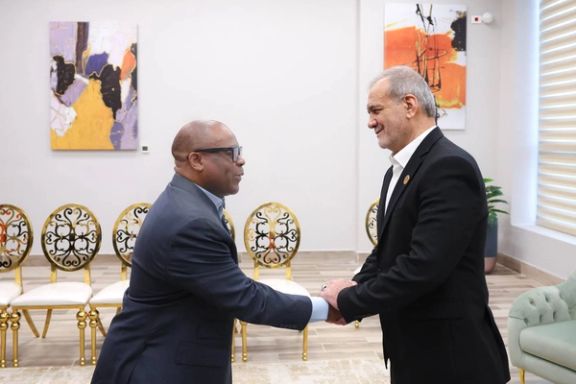
Iranian President Masoud Pezeshkian met with D-8 Secretary-General Isiaka Abdulqadir Imam on Thursday, calling for a joint investment fund to drive the organization’s goals.

Iranian President Masoud Pezeshkian met with D-8 Secretary-General Isiaka Abdulqadir Imam on Thursday, calling for a joint investment fund to drive the organization’s goals.
"The D-8 Organization provides a vast market and an excellent platform for member Islamic countries to enhance and develop trade, cultural, scientific, and technological exchanges," Pezeshkian said.
"We believe that if the decisions and resolutions adopted by the D-8 were properly followed through and implemented, the eight Islamic countries could have maximized their benefits from the organization's capacities."
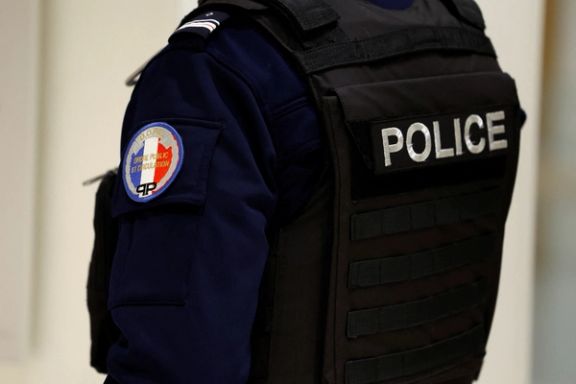
The Iranian Embassy in France announced Thursday that it is actively investigating the deaths of two Iranian citizens in a shooting in northern France.
“In line with the inherent duties of the Ministry of Foreign Affairs and diplomatic and consular missions to defend and support citizens abroad, the matter is being actively pursued,” the embassy said in a statement published by Iranian media.
According to Le Monde, five people were killed in northern France on Saturday, including two Iranian men, aged 19 and 30, who were living in a local migrant camp.
A 22-year-old suspect surrendered to authorities and was taken into custody on the same day.
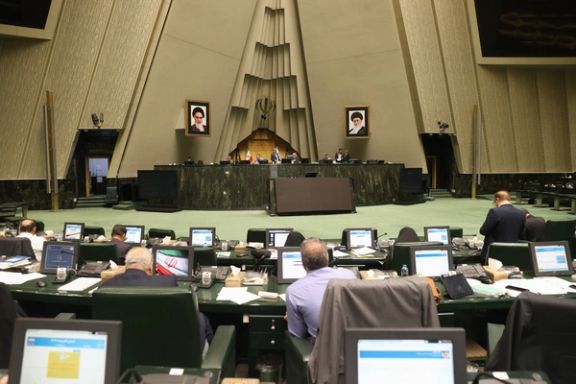
Iran's minister of economy has been summoned to parliament for questioning due to currency fluctuations and their negative impact on the economy and people’s livelihoods, MP Abbas Goudarzi said Thursday.
“The representatives of the nation have summoned the minister of economy to parliament with questions, and if necessary, they will initiate impeachment proceedings,” Goudarzi said.
The Iranian rial plummeted to a historic low against the US dollar on Wednesday, trading at over 780,000 rials per dollar. The Iranian currency has lost about 50% of its value in less than a year.
A notable shock to the currency market occurred on November 6, when the dollar surged past 700,000 rials following news of Donald Trump’s victory in the US presidential election. However, the currency’s decline had already begun in September, triggered by severe setbacks inflicted by Israel on Iran's key regional proxy, Hezbollah, and an Israeli airstrike that destroyed much of Iran's air defenses.
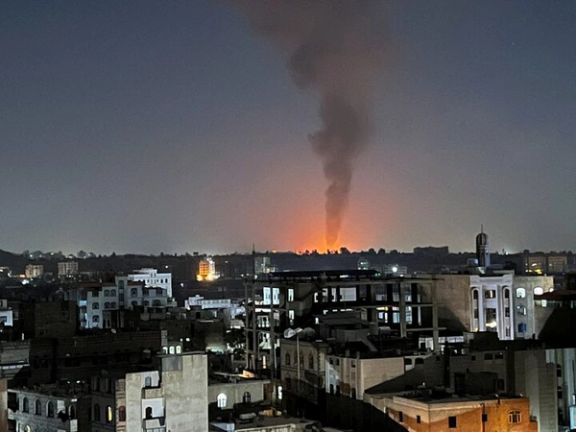
Israel launched a series of airstrikes across Yemen on Thursday morning targeting key infrastructure in territories controlled by Iran’s Houthi allies in the wake of a missile strike overnight.
Since October 7, when Iran-backed Hamas invaded Israel sparking the Gaza war, Iran’s Houthis in Yemen have launched more than 200 missile and 170 drones at Israel, most of which were intercepted before reaching Israeli territory.
But the early Thursday morning attack, which badly damaged a school in Ramat Gan, north of Tel Aviv, triggered a wave of counterattacks, after almost daily firing from Yemen over recent weeks.
Israel sent 14 fighter jets that flew a distance of more than 1,700 kilometers, among the targets, the ports of Ras Issa, Hodeidah and al-Salif. A total of eight tugboats were attacked and in Sana'a, fuel tanks, oil, and a power plant were hit. Nine people were believed to have been killed in Yemen so far.
The attacks, which followed the missile strike on Israel at 2:38am, began at 3:15am, the first wave in the coastal area of Yemen, and the second wave at 4:30am in the Sana'a area.
The Houthis have been targeting Israel directly along with imposing a maritime blockade on the Red Sea region. Initially aimed at forcing a ceasefire in Gaza, and targeting Israeli-linked shipping, it has since expanded to all international shipping, with dozens of international seamen taken hostage since it began in November 2023.
A statement from the Israeli military said IAF fighter jets worked with the direction of the Intelligence Directorate and the Israeli Navy.
Calling out Iran for its role in the more than one year bombardment, having funded, trained and armed the group, designated terrorists by countries including the US and UK, the military said: “The targets struck by the IDF were used by the Houthi forces for military purposes. The strikes degrade the Houthi terrorist regime, preventing it from exploiting the targets for military and terrorist purposes, including the smuggling of Iranian weapons to the region.
“Over the past year, the Houthi terrorist regime has been operating with the direction and funding of Iran, and in cooperation with Iraqi militias in order to attack the State of Israel and Israeli civilians, undermine regional stability and disrupt global freedom of navigation.”
Israeli Prime Minister Benjamin Netanyahu said on Thursday that the strikes represent the further collapse of Iran's network of military allies which Israel has been fighting in the wake of last year's Iran-backed Hamas invasion of Israel on October 7.
"After Hamas, Hezbollah and the Assad regime in Syria, the Houthis are almost the last arm of Iran's axis of evil. They are finding out, and will find out, the hard way that whoever harms Israel – will pay a very heavy price," he said, referring to a devastating campaign against Iran's largest ally, Hezbollah, in recent months, and more than a year of war against Gaza-based Hamas, which has left the group massively weakened.
In July, the US levied yet more sanctions against members of the Houthis for involvement in financing. “The Houthis in Yemen continue to receive vast revenues from the illicit shipment of Iranian commodities. This funding stream enables the Houthis’ ongoing attacks against commercial shipping in the Red Sea and surrounding waterways,” a statement from Matthew Miller, the State Department spokesman said.
According to the Council of Foreign Relations, Iranian military support to the Houthis began as early as 2009, amid the Houthis’ first war against Yemen’s government.
“Most experts agree that the Houthis were receiving weapons from Iran by 2014, the year they captured Sanaa. In both cases, military intervention against the Houthis by Iran’s regional rival, Saudi Arabia, likely catalyzed Tehran’s increased interest in the group,” research from the think tank found.
The group, like Hezbollah in Lebanon and Hamas in Gaza, have become part of what is known as Iran’s ‘axis of resistance’ of militia around the region, formed by Supreme Leader Ali Khamenei as a means to bolster power and bring down Israel and the US presence in the Middle East.
Israeli Defense Minister Israel Katz said on Thursday morning: ”We attacked strategic targets of the Houthi terrorist organization in Yemen once again tonight … We will not accept rockets being fired at Israel, nor damage to shipping lanes. We will strike with force and will not allow the continuation of the situation of shooting and threats against the State of Israel."
In the aftermath of the attacks, Muhammad al-Bahithi from the Houthi political bureau, said that "the American-Israeli attack on civilian facilities in Yemen, power plants and ports, exposes the hypocrisy of the West”, though Israel and the US had not confirmed their involvement in the strikes overnight.
The US and UK have, however, launched a series of joint strikes against the Houthis since the blockade began last year, the US heading an international coalition to combat the action which has massively impacted global shipping.
“Our military operations in support of Gaza will continue, escalation will be met with escalation until the genocide in Gaza stops and food, medicine and fuel are brought in for the residents,” al-Bahithi said.
On Thursday, the Israeli military said that an interception had led to shrapnel damage in the wake of the attack.
"It is likely that the damage was caused by partial interception of the missile launched from Yemen and that the missile warhead was the part that exploded and damaged the school," a statement said, an investigation underway.
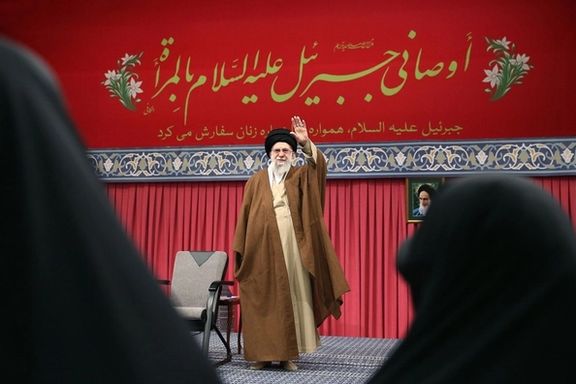
Iran's Supreme National Security (SNSC) may have shelved the controversial new hijab law, some lawmakers and the media outlets in Tehran say, most likely with the consent of Supreme Leader Ali Khamenei.
For months, the law imposing heavy fines and even prison sentences on women violating hijab regulations has sparked division among the public and even Islamic government politicians. During his election campaign, President Masoud Pezeshkian pledged to prevent the harsh treatment of women for hijab.
In response to a question from the semi-official Mehr News Agency Wednesday regarding the government’s actions concerning the Hijab and Chastity Law, which has been referred to the Supreme National Security Council (SNSC), Pezeshkian’s parliamentary deputy, Shahram Dabiri, told reporters that the government has so far requested the law “not to be promulgated, allowing for a decision to be made on it in the future.”
Dabiri added that Parliament Speaker Mohammad-Bagher Ghalibaf has urged the administration to propose an amendment bill, but whether such a bill will be submitted to the Parliament has yet to be decided.
The President heads the Security Council, but all its decisions require the Supreme Leader’s signature to come into effect.
Khamenei delivered a speech to a group of women Tuesday on the occasion of the birthday of the Prophet Mohammed’s daughter, Fatima, but quite uncharacteristically he did not make any reference to the new hijab law or the issue of hijab in general.
In a speech in April 2023, Khamenei asserted that flouting hijab was “religiously and politically haram (forbidden)”. He claimed that foreign intelligence services were encouraging Iranian women to disobey the mandatory hijab.
He also claimed that “the enemy” was working according to “a plan and plot” and urged authorities to have their own plan for dealing with the issue of women’s unveiling.
His statement at the time was widely interpreted as a directive to authorities to take whatever measures necessary to reassert control over women's appearance in public, a control that had diminished in the wake of the Woman, Life, Freedom protests.
A day after the speech, Ghalibaf said Khamenei's order was clear and promised to give precedence to any hijab-related motion or bill, and the police and other authorities including Tehran Metro security increased their pressure on women and businesses such as shops, restaurants, cafes to enforce hijab rules.
In recent days, several lawmakers, including Deputy Speaker Ali Nikzad, have confirmed that the Supreme National Security Council (SNSC) has decided to put the hijab law on hold for now. Speaking to the Khabar Online news website on Saturday, Nikzad admitted he was unsure how long the suspension of the law’s implementation would last.
Akbar Rajbarzadeh, another lawmaker, told Khabar Online that the SNSC's decision had to be obeyed because the Council is the highest decision-making body in national security matters.
“The Supreme National Security Council’s preclusion of the promulgation of a controversial law is almost unprecedented, or at least [such an incident] had never been given wide coverage by the media,” the conservative Khabar Online wrote Sunday.
It seems that with the SNSC’s interference, the public and the media will no longer be preoccupied with the controversial law, the conservative Tabnak on Sunday wrote. The step taken by the SNSC would help “the country’s stability and security given the extraordinary sensitivity of the regional and international situations.”
The SNSC consists of two representatives of the Supreme Leader, the heads of the three forces of the government, ministers of interior, intelligence, and foreign affairs, the chief of armed forces’ staff, the Revolutionary Guards (IRGC), and the regular Army commanders, and the head of the Planning and Budget Organization.
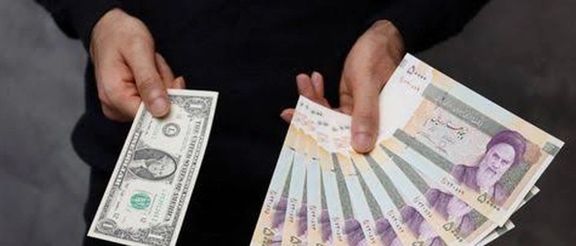
The US State Department said on Wednesday that its ongoing sanctions have played a significant role in the sharp devaluation of the Iranian rial to record lows against the US dollar.
During a briefing on Wednesday, Deputy Spokesperson Vedant Patel highlighted that the sanctions have contributed to Iran's inability to meet its budget projections.
“As a result of US sanctions, Iran's government has failed to meet its budget projections again this year,” Patel said. “The rial is the lowest it has ever been against the dollar."
He also pointed to the broader economic impact, saying that sanctions have disrupted Iran's access to essential goods, services and technology.
"These efforts all work to cut off Iran's ability to perpetuate destabilizing actions across the region," he added, stressing the ongoing determination of the United States and its allies to prevent Iran from generating revenue.
Critics of Biden's Iran policy have long argued that his administration has allowed China to increase imports of sanctioned Iranian crude oil since 2021, allowing the shipments to increase from less than 300,000 barrels per day in 2020 to around 1.5 million in 2024.
In the latest in a wave of sanctions, the State Department announced on Wednesday that it targeted Majid Mousavi Eftekhari, Deputy Commander of the IRGC Aerospace Force, and two entities based in Iran for their support of the development of Iran's ballistic missile and drone programs.
The Iranian rial’s dramatic fall continues to exacerbate the country’s economic crisis. On Wednesday, the rial was trading at over 780,000 to the US dollar.
This sharp decline, coupled with soaring inflation, has eroded the purchasing power of ordinary Iranians, leaving many struggling to afford basic goods and services.
Iran’s economic woes are further compounded by a severe energy crisis. The country is grappling with critical shortages in electricity and natural gas, with supply failing to meet demand, especially during the cold winter months.
Power outages have become a frequent occurrence, even in major cities like Tehran. The energy crisis has reached alarming levels, with insufficient infrastructure investment, inefficiencies in energy management, and sanctions blocking access to advanced technology further exacerbating the situation.
As Iran faces its most severe economic downturn in decades, the Iranian population’s resilience is being tested as never before, with increasing uncertainty about the government’s ability to manage the nation’s worsening crises.